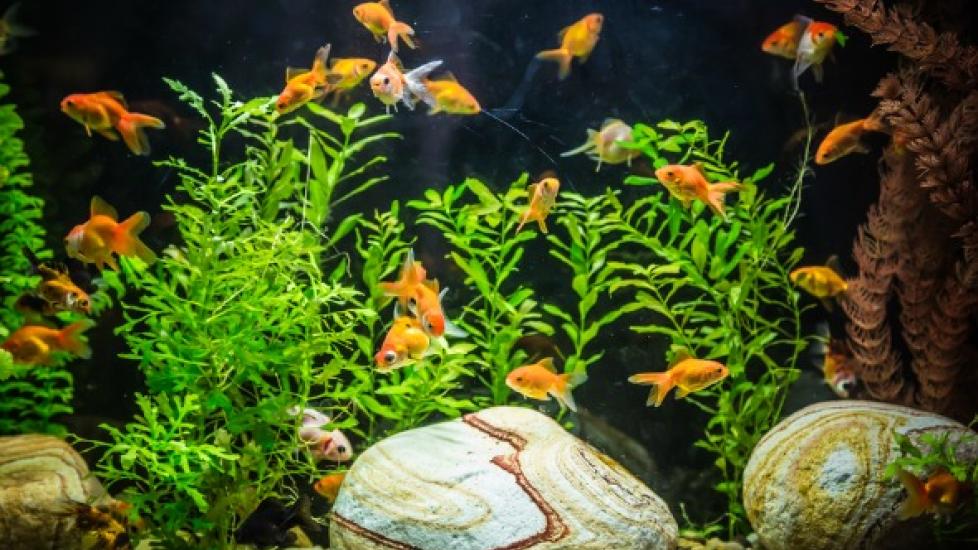Fish Food: How to Properly Feed Your Underwater Pet
What type of food should you feed your fish? How much food does it need daily? We answer these and other common questions about the nutritional needs of a fish.
The amount of food you give your fish is important. That said, do not overfeed the animal. You have probably heard this before and it is true. While overfeeding won’t make your fish explode, it will contaminate the water, making the tank an unpleasant place to live. In addition, an excessive amount of food particles in the tank can clog the filters, which also causes the water to become toxic.
So how much food is too much?
It depends on the type, size, and breed of your fish. Try sprinkling a small amount of food in the fish's tank and watch. Your fish should eat its fill in about five minutes. Experiment and take notes until you find appropriate amount for your fish. However, it is better to err on the side of caution -- at least at first -- and feed the fish too little rather than too much.
How many times should you feed your fish daily?
This will also depend on the fish's breed and size. Most fish only require a once-a-day feeding, though some people like to split it into two smaller feedings. Consult your veterinarian or the fish experts at your local aquarium to learn about the daily requirements for your particular breed. But be aware that a fish will eat even when it's not hungry. So there is no point feeding your water-bound pet three times a day, when once a day is sufficient.
What about the type of fish food?
Some food is breed-specific. Other types are based on whether the fish is of fresh or salt water. Some fish even eat live food (e.g., worms, shrimp, and fruit flies), so make sure to get this information before purchasing the fish and bringing it home, especially if you get queasy at the site of one live creature eating another.
Regardless of the type of food, fish, much like other animals, require daily nutrients such as vitamins, minerals, and protein. Again, consult your veterinarian or the fish experts at your local aquarium to best fulfill these needs for your pet fish.
How should you store your fish food?
When storing food, it is best to keep it in the freezer to help preserve the vitamin content. And for the best nutritional value, only buy enough food for the month. That way you will be able to have the healthiest fish possible.
It may be seem like a difficult ordeal to feed your fish, but really it is not. As long as you don't indulge your underwater pet by giving it some crackers to munch on, you should be fine. Anyways, fish aren't much into snacking.
Good luck at feeding time.
